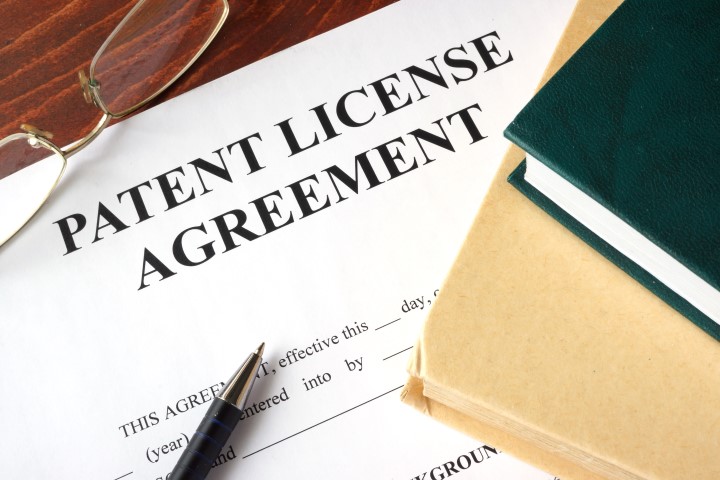
Patent Licensing: A Definitive Guide
What is Patent Licensing?
In simple terms, patent licensing involves the licensor giving up the right to their intellectual property to a licensee in exchange for some form of financial return. This is usually done for a predetermined period of time. There are a number of ways in which you can license your patent, depending on your short and long-term goals as well as the nature of your invention or design.
Types of Patent Licenses
There are two main types of patent licenses, namely an exclusive or non-exclusive license. As the names suggest, exclusive patent licenses mean that the patent owner transfers all ownership rights to a single licensee.

If there are multiple patent owners, they must all agree to an exclusive license. Non-exclusive licenses allow the patent owner to sell their patent to multiple licensees. None of the licensees will have exclusive rights. In addition, only one patent owner (in the case of multiple patent owners) needs to agree to non-exclusive terms.
Patent Licensing Advantages
Before you decide whether or not patent licensing is for you, it’s important to understand all of the benefits that you will enjoy when taking this step. These are the top advantages:
- Limits risk: If you establish a business to make, market and sell your own invention, you will carry all of the risks involved. If your invention does not take off, you stand to lose significantly. If you license your patent, you can enjoy immediate (and future) financial benefits without the risk of getting a business off the ground.
- Going global: You may not be able to produce your invention on a large scale, but a licensee could have access to more resources that will help your invention become a greater international success.
- Limited time: The license allows the use of your intellectual property for a set period of time. This means that you can choose whether or not to renew the license. When the license expires, you regain full and exclusive rights.
- Avoid legal drama: If somebody steals your patent, you can spend a lot of time and money battling it out in court. Instead, you could sell your patent license and receive fair financial compensation without all the headaches of a legal battle.
Patent Licensing Disadvantages
While it’s easy to become enthusiastic about all the benefits mentioned above, making the right decision also involves considering the potential downsides. Here are some possible disadvantages to keep in mind:
- Find a buyer: In order to make money from your patent license, you need to find a buyer (or multiple buyers). This can be difficult depending on the type of design or invention that you have patented. It can take some time to sell patent licenses.
- Negotiating a price: While you may believe that your patent license has a particular value, a licensee may not agree. So negotiating an agreeable price can be tricky.
Types of Patent Licenses
- Exclusive: The licensee receives transfer ownership of the patent, but the person giving the license retains the title.
- Non-exclusive: The license is granted to multiple licensees.
- Sub license: The licensee can issue a license to various organizations in order to make the product. Any profits will depend on the agreement between the third party and the primary licensee.
- Cross-licensing: Licenses can be exchanged between various creators/organizations in order to facilitate production. This occurs when support of other products is needed to create another product.
- Compulsory: This is normally reserved for pharmaceutical patents, and it usually occurs when the government allows somebody to use your patented invention even against the will of the patent holder. The patent holder receives some kind of financial compensation.
- Voluntary: Another form of licensing mainly for pharmaceutical patents. These are an act of goodwill. Patent licenses can be exclusive or non-exclusive in this case.
- Carrot: A market practice that shows a potential licensee what the patent license has to offer and how they can benefit from this license.
- Stick: Another common practice if somebody is already using your patent without permission. You can avoid a legal battle by offering them a license.
Before taking action, it is important that you follow all the necessary patent licensing steps. Avoid taking action before you have filed a license agreement. In other words, the licensee should not begin production until your agreement is in place. You should always select licensees with care and make sure that you set the bar high enough in terms of royalties.
In addition, you should set performance obligations in the license agreement to ensure that the licensee truly strives to maximize the potential of your patent. Remember, licensors are patent owners which means that you are liable for your inventions. Make sure that you are properly insured in the event of any legal issues. Finally, don’t underestimate the importance of having an expert in your corner.
At Levin Consulting Group, we offer specialized patent and patent licensing services that will help you get the most out of your licensing agreements. You can get in touch with us for help with a patent draft, a medical device patent, patent portfolio management, and much more. Contact our expert team today and find out more about how we can assist.
Canada:
+1 (647) 835-6854
111 Bayhampton Crescent
USA:
+1 (647) 835-6854
820 Albemarle Street
Wyckoff, New Jersey 07481
Israel:
+972 (54) 536-6923
29/2 Shdema St, Karmiel
2198129





